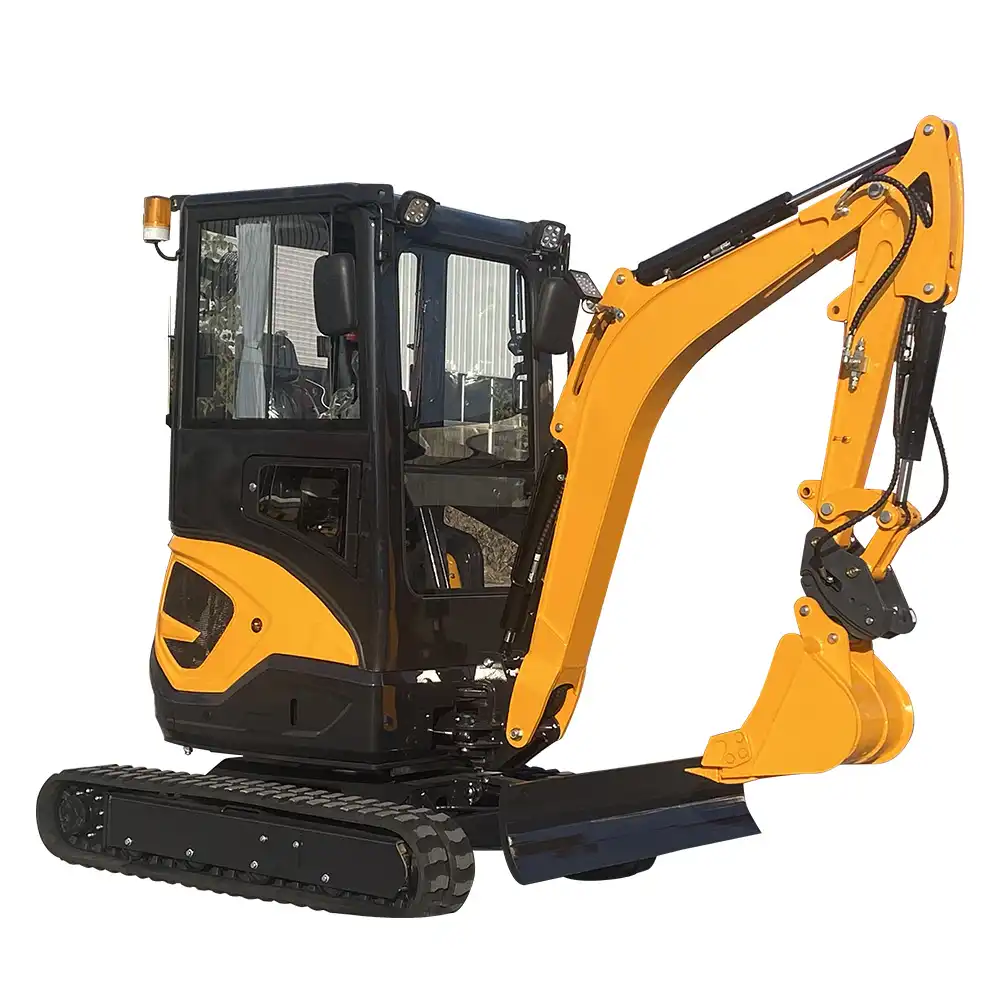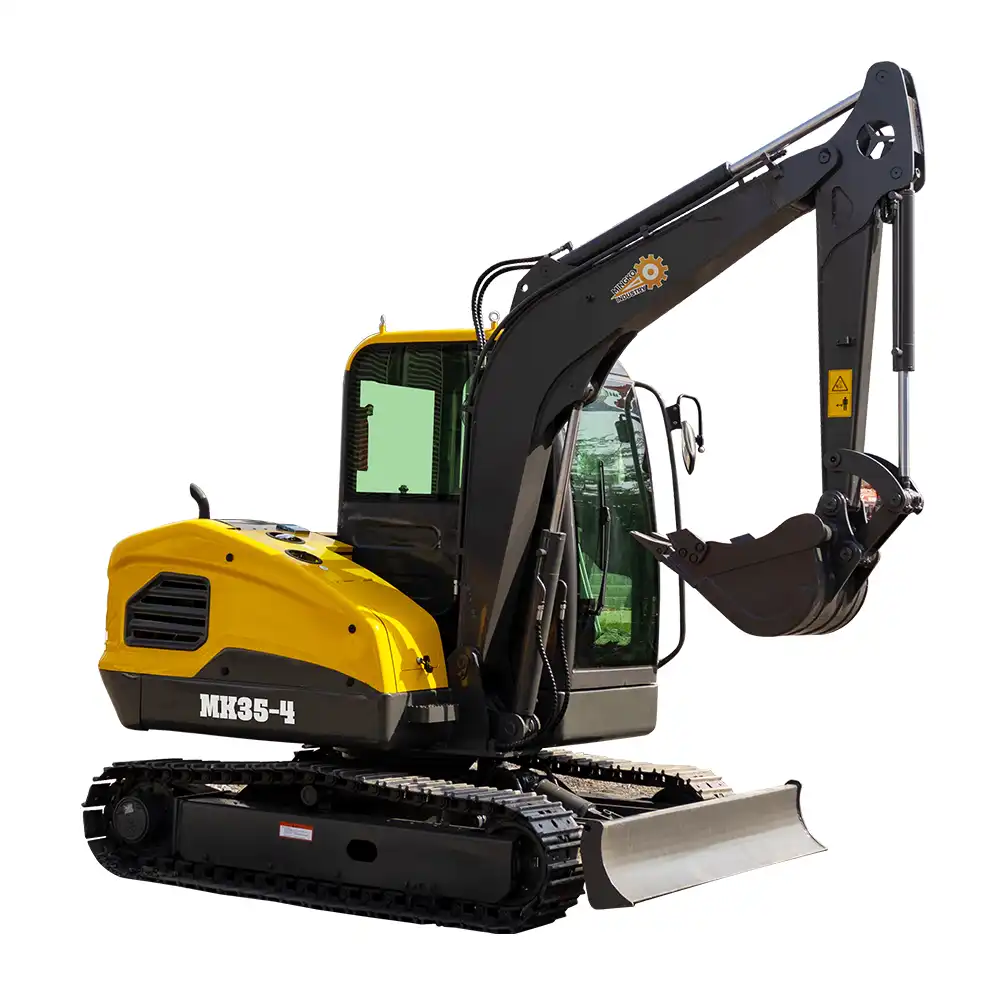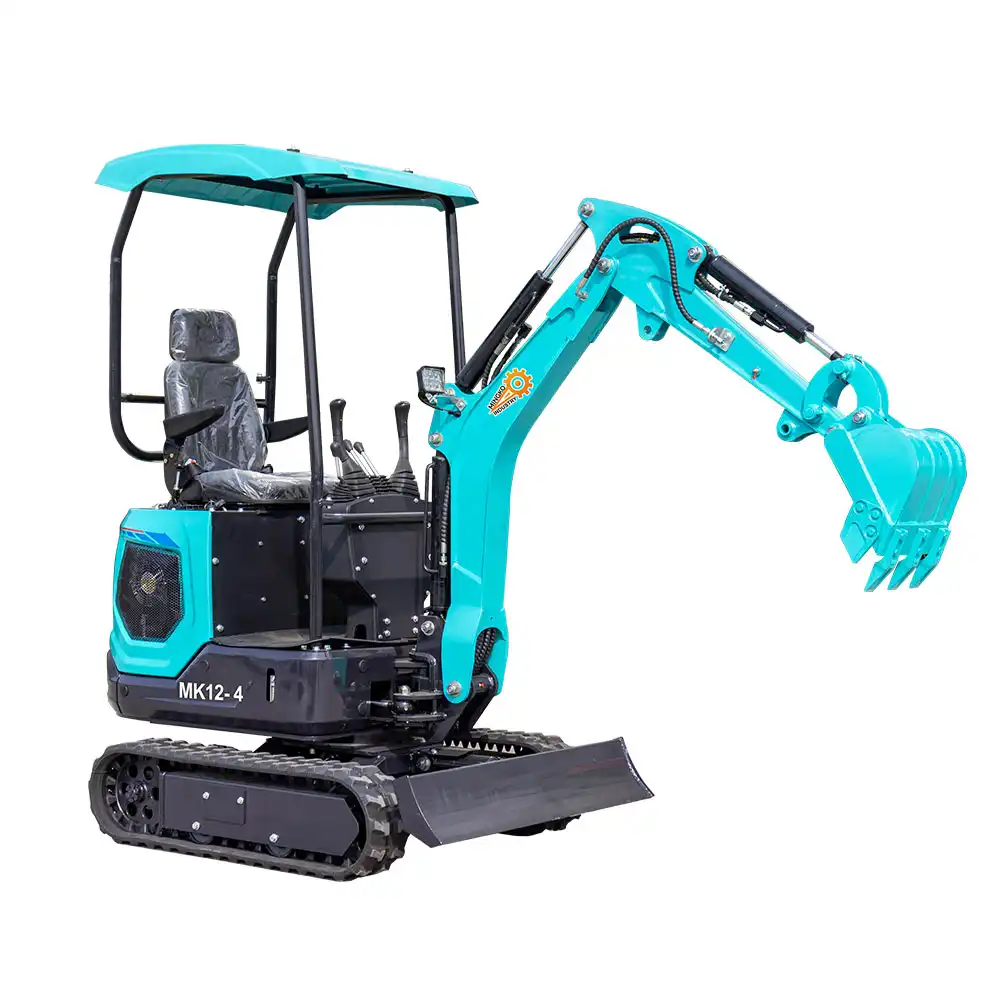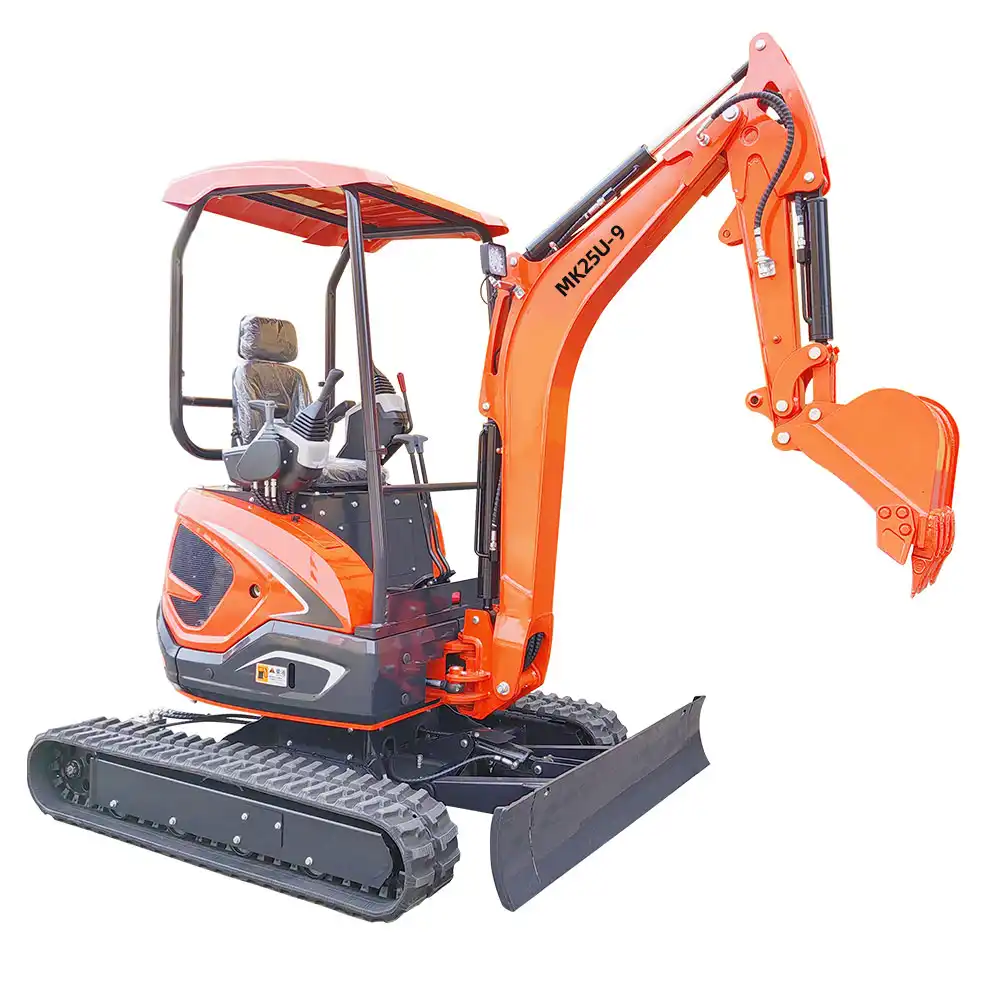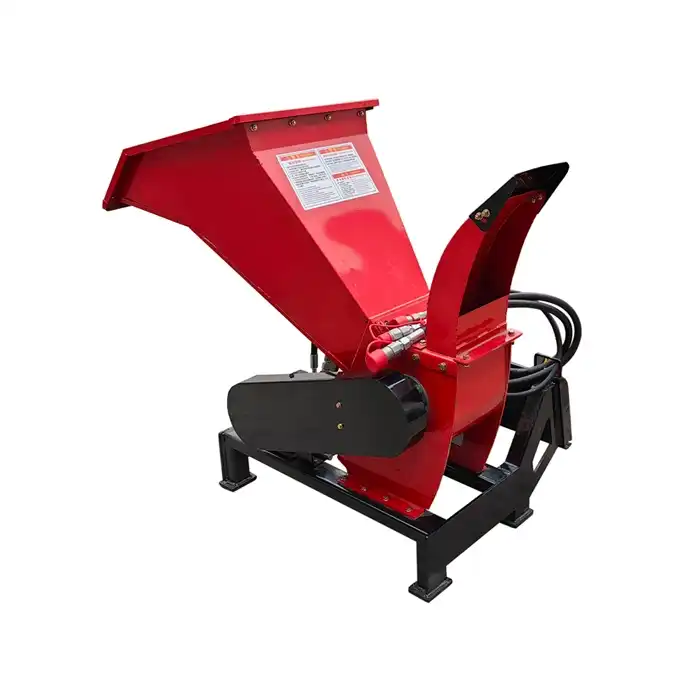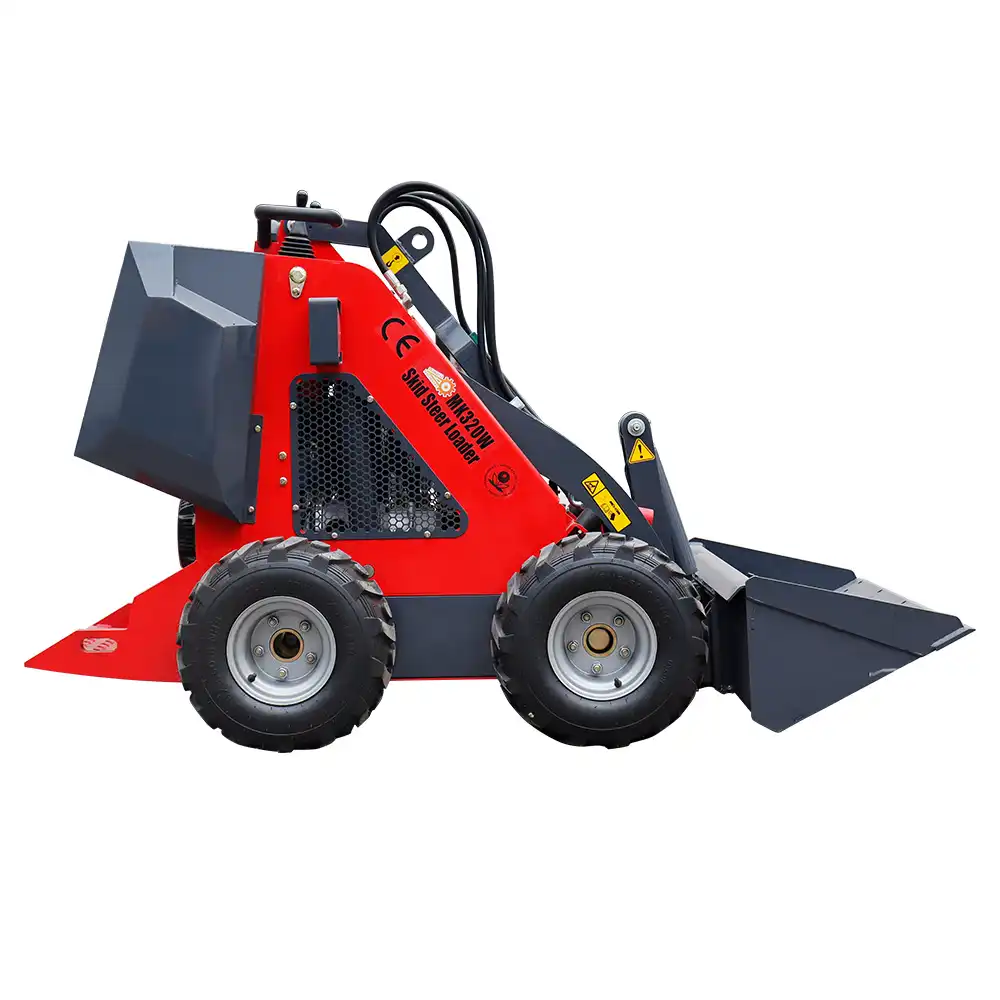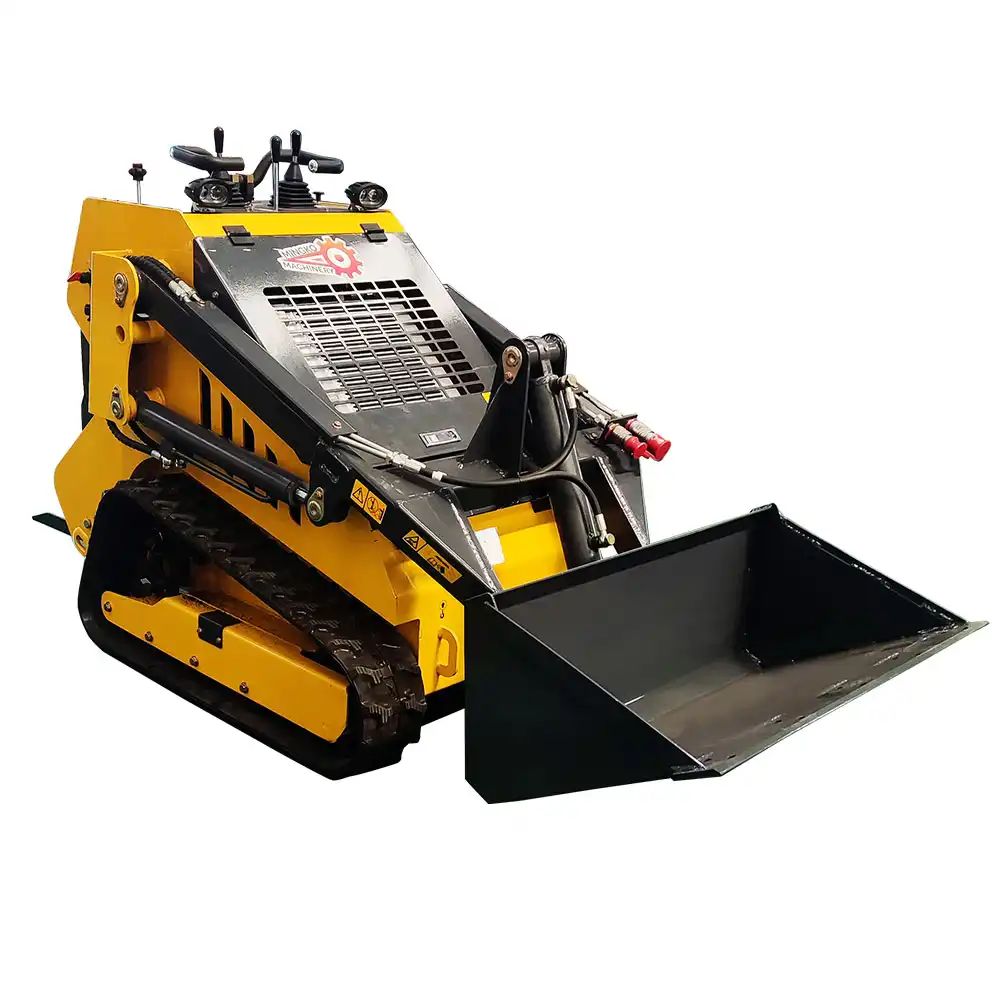2.5 ton mini digger advise
Are you struggling to find the perfect balance between power and maneuverability for your construction projects? Many contractors face the dilemma of choosing equipment that's too small for demanding tasks or too large for tight spaces. The 2.5 Ton Mini Excavator emerges as the ideal solution, offering the sweet spot between compact design and robust performance. This comprehensive guide provides essential advice for selecting, operating, and maximizing the potential of your 2.5 Ton Mini Excavator investment.
Key Features and Specifications of 2.5 Ton Mini Excavators
Engine Performance and Power Systems
The heart of any reliable 2.5 Ton Mini Excavator lies in its engine configuration. Modern units typically feature either Euro 5 EPA Changchai 390 engines delivering 20kw of power or Kubota D1105 engines providing 14.2KW of reliable performance. These engine options ensure compliance with international emission standards while maintaining optimal fuel efficiency. The double-speed transmission system allows operators to adjust working speed according to specific task requirements, enhancing both productivity and precision during excavation operations. The hydraulic pilot valve control system represents a significant advancement in operator comfort and machine responsiveness. This technology enables smooth, precise control of all excavator functions, reducing operator fatigue during extended work periods. The zero-turn tail design maximizes maneuverability in confined spaces, making the 2.5 Ton Mini Excavator particularly valuable for urban construction projects where space constraints are critical considerations.
Operational Capabilities and Working Parameters
A standard 2.5 Ton Mini Excavator typically features an operating weight of 2500kg, providing excellent stability during digging operations while remaining transportable on standard trailers. The 0.06 cubic meter bucket capacity strikes an optimal balance for various excavation tasks, from trenching to material handling. Maximum digging depth reaches approximately 2600mm, while maximum digging height extends to 2637mm, offering versatility for different project requirements. The compact machine dimensions of approximately 2700x1300x2550mm ensure easy transportation and operation in restricted areas. The chassis width of 1300mm allows passage through standard gates and narrow access points, while the 4163mm excavation radius provides substantial reach for efficient material placement. These specifications make the 2.5 Ton Mini Excavator an invaluable asset for contractors handling diverse project types.
Selecting the Right 2.5 Ton Mini Excavator for Your Needs
Application-Specific Considerations
Choosing the appropriate 2.5 Ton Mini Excavator requires careful evaluation of intended applications and working conditions. For landscaping and farming operations, focus on models with enhanced maneuverability and gentle ground pressure to minimize soil compaction. Urban construction projects benefit from zero-turn capabilities and reduced noise levels for working in residential areas. Small-scale demolition work requires robust build quality and reliable hydraulic systems capable of handling varied attachment types. Road maintenance applications demand excellent stability and precise control for accurate trenching and repair work. The versatility of attachment options significantly expands the 2.5 Ton Mini Excavator's utility, allowing single machines to perform multiple functions including digging, lifting, breaking, and material handling. Consider manufacturers offering comprehensive attachment compatibility, including buckets of various sizes, hydraulic breakers, augers, and grapples.
Quality Assurance and Certification Standards
When evaluating 2.5 Ton Mini Excavator options, prioritize manufacturers maintaining EPA and CE certifications, ensuring compliance with both U.S. and European environmental standards. ISO 9001 certification indicates commitment to quality management systems and consistent manufacturing processes. National High-Tech Enterprise certification demonstrates dedication to technological innovation and continuous product improvement. Manufacturing facility size and production capacity reflect a company's ability to maintain consistent quality and supply chain reliability. Facilities exceeding 50,000 square meters with dedicated workshops for different product lines indicate serious manufacturing commitment. Professional design teams supporting customized production ensure machines can be tailored to specific customer requirements, while strict quality inspection protocols guarantee defect-free delivery.
Maximizing Performance and Efficiency
Operational Best Practices
Proper operation of your 2.5 Ton Mini Excavator begins with understanding its capabilities and limitations. Regular pre-operation inspections ensure all systems function correctly and identify potential issues before they cause downtime. Daily maintenance checks at 10-hour intervals, weekly inspections at 50 hours, and comprehensive maintenance at 500-hour intervals maintain optimal performance and extend machine life. Efficient excavation techniques maximize productivity while minimizing fuel consumption and component wear. Proper bucket positioning, smooth hydraulic operation, and strategic machine positioning reduce cycle times and improve material handling efficiency. Understanding soil conditions and adjusting operating parameters accordingly prevents unnecessary strain on hydraulic systems and structural components.
Cost Management and Return on Investment
The 2.5 Ton Mini Excavator offers exceptional value through reduced operating costs and enhanced versatility. Low fuel consumption compared to larger machines significantly reduces hourly operating expenses, while easy maintenance requirements minimize downtime and service costs. The compact size allows transportation without special permits or oversized load restrictions, reducing logistics expenses. Versatility enables contractors to bid on diverse project types with confidence, knowing their equipment can handle varied requirements. The ability to work in tight spaces opens opportunities for projects inaccessible to larger machines, potentially commanding premium rates. Long service life with proper maintenance ensures extended return on investment periods, making the 2.5 Ton Mini Excavator an excellent long-term asset.
Advanced Features and Technology Integration
Modern Control Systems and Operator Comfort
Contemporary 2.5 Ton Mini Excavator designs incorporate advanced hydraulic systems delivering precise control and smooth operation. Pilot control systems reduce operator effort while improving accuracy, enabling extended operation periods without excessive fatigue. Ergonomic operator stations with adjustable seats and intuitive control layouts enhance productivity and safety. Modern machines often feature electronic monitoring systems providing real-time feedback on engine performance, hydraulic pressure, and maintenance requirements. These systems help operators maintain optimal performance while preventing potential damage through early warning alerts. Some models include GPS tracking capabilities for fleet management and theft prevention, adding value for commercial operators. Temperature control systems including oil radiators ensure consistent performance across varying environmental conditions. Proper cooling prevents hydraulic fluid degradation and maintains system efficiency during demanding operations. Cabin-equipped models provide weather protection and noise reduction, improving operator comfort and productivity during extended work periods.
Conclusion
Selecting the right 2.5 Ton Mini Excavator requires careful consideration of application requirements, quality standards, and long-term value. The optimal balance of power, maneuverability, and efficiency makes these machines indispensable for contractors seeking versatile solutions for diverse projects.
Cooperate with Shandong Mingko Industry Corporation
As a leading China 2.5 Ton Mini Excavator manufacturer and China 2.5 Ton Mini Excavator supplier, Shandong Mingko Industry Corporation combines 15+ years of manufacturing excellence with comprehensive customer support. Our China 2.5 Ton Mini Excavator factory spans over 50,000 square meters, featuring dedicated production facilities and quality control systems. We offer competitive China 2.5 Ton Mini Excavator wholesale pricing with MOQ of just 1 unit, making High Quality 2.5 Ton Mini Excavator accessible for all business sizes. Contact our team at sales@mingkomach.com for 2.5 Ton Mini Excavator price information and discover why contractors worldwide trust our 2.5 Ton Mini Excavator for sale solutions.
FAQ
Q: What is the typical lifespan of a 2.5 Ton Mini Excavator?
A: With proper maintenance, a quality 2.5 Ton Mini Excavator can operate effectively for 8,000-12,000 hours, equivalent to 10-15 years of normal use.
Q: Can a 2.5 Ton Mini Excavator handle rocky soil conditions?
A: Yes, 2.5 Ton Mini Excavators equipped with appropriate buckets and hydraulic breaker attachments can effectively work in rocky conditions, though productivity may vary based on rock hardness.
Q: What trailer requirements are needed for transporting a 2.5 Ton Mini Excavator?
A: A standard 3.5-ton capacity trailer is sufficient for most 2.5 Ton Mini Excavators, making transportation convenient without special permits in most jurisdictions.
Q: How much fuel does a 2.5 Ton Mini Excavator consume per hour?
A: Typical fuel consumption ranges from 2-4 liters per hour depending on operating conditions, engine type, and workload intensity.
References
1. "Mini Excavator Selection and Application Guidelines" by Construction Equipment Association, Technical Standards Committee
2. "Hydraulic System Maintenance for Compact Construction Equipment" by International Fluid Power Society, Engineering Division
3. "Small Construction Equipment Safety and Operation Manual" by Occupational Safety and Health Administration, Construction Standards Department
4. "Economic Analysis of Compact Excavator Operations in Construction Projects" by American Society of Civil Engineers, Construction Engineering Research Institute


